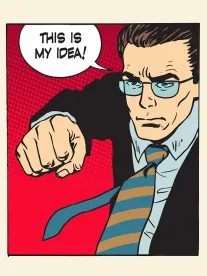Patent owners that lack sufficient resources are often required to utilize the services of an outside litigation funding source to vindicate their patent rights. Oftentimes, these patent owners communicate with such litigation funders regarding potential litigations and licensing programs such that the litigation funder can evaluate the reasonableness of the investment. It is no surprise that in such situations, licensing targets or other curious parties attempt to force the disclosure of those communications to assert leverage over the patent owner. Make no mistake though, that the disclosure of these materials, if allowed, would greatly prejudice a patent owner merely attempting to vindicate its patent rights—such attempts to pierce the work product and common interest privilege are common.
It was therefore heartening to see the recent Federal Circuit decision in Uniloc USA, Inc. et al. v. Apple, Inc., where a 2-1 panel ruled that the district court had abused its discretion by refusing to seal certain patent-licensing documents provided by plaintiffs, Uniloc USA, Inc. and Uniloc Luxembourg, S.A. (collectively “Uniloc”). The judge denied Uniloc’s motion after non-party Electronic Frontier Foundation (“EFF”) moved to intervene to argue in favor of unsealing the materials. Notably, even defendant Apple, Inc. (“Apple”) did not oppose Uniloc’s motion to seal. In denying the motion, the court unsealed sensitive and confidential third-party documents that contained licensing terms, licensee names, amounts paid, dates, as well as a memorandum from the funding source that contained its investment criteria and other third-party licensing information.
In its decision, the district court analogized a patent holder to a tenant on a plot within the realm of public knowledge, with its licensees as subtenants, thereby entitling the public to inspect the valuation of patent rights similar to real property such as houses. The district court therefore suggested that this interest outweighs those of Uniloc and others similarly situated in shielding financial and licensing information from public view. Peripherally, the court unsealed the memorandum because the funding source failed to comply with a local procedural rule.
The Federal Circuit majority squarely rejected the district court’s strained analogy, explaining that since valid patents are granted for new inventions (i.e. something that did not exist previously), patents are not like real property. Instead, the panel found that patents are more akin to the creation of new land by expanding the realm of public knowledge. The majority further elucidated that absent an issue raised by the parties concerning license rights, there is no public interest or entitlement to information concerning consideration for the grant of licenses. The context of patent litigation is different from other situations where there might be a public interest in disclosure, such as in antitrust cases or Federal Trade Commission investigations involving unlawful trade restriction or monopolization. Rather, here the public’s interest is confined to the enforcement of patents, and ensuring patents are not procured by fraud or other improper means. The majority also noted that the funder’s procedural failings do not justify unsealing third-party confidential information.
With that, the motion was remanded to the district court to make particularized determinations as to whether the third-party information is protectable as a trade secret or otherwise entitled to protection under law. This decision demonstrates the Federal Circuit’s recognition of the importance of keeping certain patent licensing and other trade secret materials confidential. It further provides a clear message on where the public’s interest on patent matters starts and ends. Going forward, patent owners who utilize litigation funding, and such litigation funders, should be mindful of the potential pitfalls surrounding communications between the patent owner and funder. They should further make sure that such information is closely guarded, with tight controls, to ensure that appropriate trade secret protection is retained.




 />i
/>i
